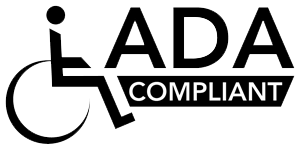
Most of us would feel so much better if we worked less, ate less, drank less, slept more, turned off our electronic devices once in a while, and spent more time with the people we love.
Simply put, sometimes it’s easier for us to engage in unhealthy behaviors than it is to start the hard work of improving our health. It can feel overwhelming to tackle our medical or emotional problems, and since none of us likes to feel as though our lives are not going well, we can opt for unhealthy coping mechanisms. The trouble with that is that rather than solving our problems, at times our coping mechanisms prolong them.
I know my saying this won’t necessarily make people pull out their phones and make an appointment with a behavioral health provider, but I just want to plant this seed: wouldn’t it be powerful if you could let go of the past emotional baggage we all carry and advance to a new understanding of yourself?
As a primary care provider who works in behavioral health, I have seen patients get to a place where they felt happier, more relaxed, and more comfortable in their own lives. Seeking behavioral therapy is a courageous choice. I tell my patients, “This could be a hard year. Transition is often hard. It takes focus to dig into the deep issues that affect our lives. But ultimately, I think you’ll have a deeper understanding of yourself.”
Even when people are willing to do the work, the barriers to seeking mental health treatment can loom large. The stigma around mental illness can be difficult to overcome, both the opinions of others and people’s own opinions of what it means to be in counseling or taking medication.
Sometimes seeing the benefits of change is not enough for us to overcome our reluctance to seek treatment, to address our emotional lives. The status quo can feel safe, even if it isn’t ideal. In my own life, I try to reduce stress and live a healthier, more authentic life and help my patients do the same.
What does it mean to try to live an authentic life? It can be the hardest thing we do. It means living a full life while being true to yourself. Each of us has to figure out what this means because it is different for each individual. Unfortunately, society doesn’t make this self-discovery process easy.
When I work with behavioral health patients, I listen to their issues, share my knowledge about medication and pathways to counseling. Patients must find answers for themselves. We can talk about the tools for self-discovery, and we can discuss how to find a more centered place, but patients need to recognize this is work for them to do. The goal is, perhaps for all of us, finding a more centered place.
Whether patients suffer from depression, anxiety, bipolar disorder, schizophrenia, or other psychological stress, it’s up to them to decide what to do and how to live. Sometimes people believe medication is the best way to help themselves, when what they may need is counseling. Although medication can be life-changing, the patient’s relationship with their provider is typically the true gateway to healing and understanding.
When it comes down to it, we are all responsible for our own health, but as a community, we have to come together to accomplish community health. That’s what we try to do every day at Mendocino Coast Clinics. As healthcare providers, we are here for support, but we can’t do the work for others. My goal as a provider is to help each of my patients feel as healthy as possible while trying to live an authentic life.
If you’d like to take a first step in this direction, consider scheduling an appointment at a community health center like Mendocino Coast Clinics. We do not turn anyone away on the basis of whether you can afford care. We accept patients whether you have insurance or not. If you think we can help you, give us a call. If you think your health is in jeopardy, give us a call. If you want to heal, let’s do this. We are here to connect with you.
James Thomas is a physician assistant at Mendocino Coast Clinics, a local, non-profit, federally qualified health center offering medical, dental and behavioral health care to people in the coastal communities of Mendocino County.


